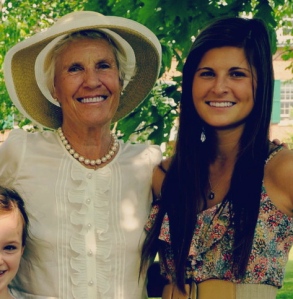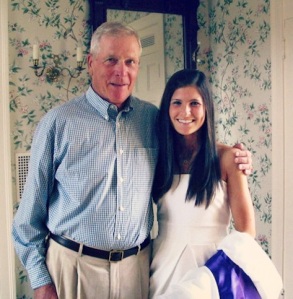“The problem with today’s news is that it comes in sound bite form, as if the reporters could care less about giving a story the time it deserves to be credible.”
Bob Hetterly says the mainstream news relied on present-day is biased and lacks depth; one of the reasons he refuses to adapt to the wave of smart technology that solely echoes unreliable information.
As a man in his mid-eighties, Bob recalls his personal adaptation to technology advances as a ‘frustrating transition.’ On the contrary, his wife Kendall Hetterly visualizes smart technology adaptation as “the future of connection.” Her efforts to create a Facebook profile and upgrade her computer to the next model stem from the ability to stay connected with family of younger generations. However, Kendall agrees with her husband’s view of biased news media taking over television and, as easy as copy and paste, reiterating itself via social media and smart technology.
Pearl Harbor is the first big news story Bob recalls hearing on the radio when he was 8-years-old. He describes his childhood as walking a mile and back daily to pick up an issue of the North Evening News. When television was introduced, only one set remained in the Brown University student lounge, which was rarely used at the time.
Kendall’s earliest news memory is the McCarthy Hearings while she was in college; she mentions she did not spend her free time listening intently to the news while growing up. However, her family was the first on the block to have a television set, broadcasting 3 channels, including the local news. This new wave of technology dramatically changed the way Kendall and Bob received their news as time continued on.
Currently, neither has a current subscription to a newspaper nor picks one up to read on a daily basis. Although Kendall has adapted to technological advances by obtaining a computer and cell phone to stay connected to family, Bob says he will consider a cell phone for emergencies when he gets older.
But why wouldn’t someone want to be connected 24/7? Both grandparents conclude their lack of desire to adapt to social media outlets comes from the privacy both radio and newspapers provide to them still today. Kendall mentions the privacy of listening to a radio in the car or at home strengthens the credibility some news stories deserve.
“I like being able to listen to news, especially local, without having to overhear someone else’s comment about it. I can make my own interpretations of what the news story means to me.”
When Kendall and Bob were young, the radio and daily newspaper were the primary providers of news. A household radio along with Time and Life Magazine subscriptions broadcasted and reported in-depth news stories that portrayed verifiable truths. Today, any report mentioned on a news outlet will be second-guessed or hesitated toward belief by someone.
“I don’t like how the news displays itself today,” Bob mentions, “I can’t listen to a story heard on CNN or FOX and initially believe what the paid reporter has to say. It’s all about the money behind the selling story. Today’s news reporter doesn’t care if a story is as accurate as it can be, but instead holds more interest in the story’s money-drawing ability.”
The married couple’s distaste in news portrayal today pushes them further away from the idea of sharing information via social media outlets overflowing with mainstream news they already resist.
“ We are still very aware of what is happening in the world,” says Kendall, “ but the decision to interpret our own beliefs of what the news is doesn’t have to be shared all over the Internet.”
Both Kendall and Bob understand the necessity of social media networking for the generations of today and tomorrow. The ability to easily access the Internet and connect with others via cell phone is astonishing compared to what was once solely the remarkable World-Wide Web. Marketing and advertising capabilities for businesses heavily rely on social media sites to spread awareness and make an outcome of profit.
But when it comes to sharing everything from personal details to personal interpretations of news and beliefs, it is then where the news reported today falls short to the traditional methods of journalism.
Although he has not adapted to the technological advance of a personal mobile phone, Bob is more than aware of the news being reported today, which he depicts as a broadcast on TV which is further misinterpreted and reiterated online.
“I can recognize that today’s reporters are irresponsible for their hasty sound bite stories, but the real issue lies within today’s networking generation. They are no longer capable of reporting news without inserting their own biased twist.”
Bob and Kendall Hetterly live in Efland, North Carolina with their dog and two cats. They are parents to three children and grandparents to nine grandchildren.



